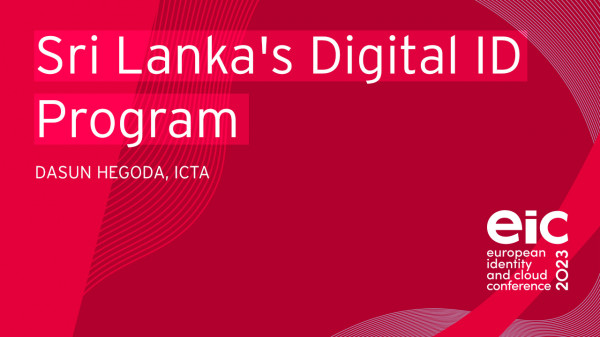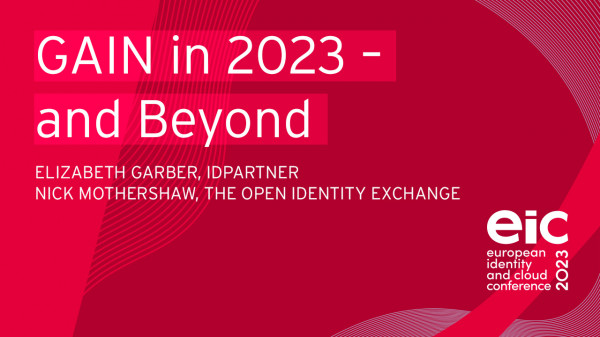|
Sri Lanka has successfully implemented a Digital ID POC based on the MOSIP platform. |

This session will share how the concept of a Global Assured Identity Network (GAIN) has evolved since 155 identity experts proposed it in 2021. It summarizes a recent paper by the non-profits that guide the GAIN vision.
GAIN remains a call for collaboration toward globally interoperable identity assurance at-scale - a purpose that underpins the goals of governments, intergovernmental agencies, and private industry. It has inspired multiple working groups and continues to unite six non-profits - even (and especially) as the technical and policy landscape evolves to include emerging standards (e.g. MDLs, DIDs, VCs) and regulation (e.g. eIDAS 2.0).
This talk reflects on GAIN's relevance in today’s landscape and shares progress. It includes a deep dive into the technical community group at the OpenID Foundation, which has built a prototype that demonstrates cross-network trust and high-assurance identity data exchange. It now turns its attention to digital wallets, verifiable credentials, legal entity identifiers, and government-issued IDs.
It also reviews forward-thinking policy work by the Open Identity Exchange, which paves the way for Smart Digital IDs. Their Global Policy Metadata Framework proposes the standard publication of policy characteristics. In this world, policy metadata is shared between each trust framework through trusted wallets.

Within the digital identity wallet-movement (and especially SSI), there is a lot of focus on proving something about yourself, without revealing anything else, also known as ZKP (Zero-Knowledge Proof). It is important to realize that if we build this into the future identity systems, we will also grant any criminal the right to full anonymity.
While there are some marginal use cases (buying beer and adult materials) where we might want this, using ZKP also excludes accountability, unless there is a way to reveal the identity behind the proof. This would then be pseudonymity, and the challenge here, is who is authorized to reveal this, and how to prevent mis-use.
